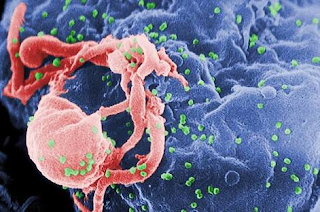A new study by scientists at the Gladstone Institutes shows that infection sites could affect the immune system’s response to a virus and the way the virus spreads through the body. The researchers focused on common routes of sexual transmission of viruses, such as the lower female reproductive tract and the lower gastrointestinal tract that includes the large intestine and the anus.
These mucosal barriers-the body’s openings lined with a membrane called mucosa are responsible for distinguishing between harmless bacteria that normally reside in human and potentially dangerous pathogens, as well as other substances, such as food or sperm. Human body is constantly trying to balance between tolerating harmless elements and defending against the threats.
Reseachers discovered that the body’s reaction is different based on the infection site. They showed that the vaginal and rectal cavities activate a distinct immune response to the same pathogen. To conduct the study, research team created a new model of viral infection through the rectum that uses lymphocytic choriomeningitis virus (LCMV), a rodent virus often used in research to model other pathogens. They then compared their findings to their previous work on vaginal infection by LCMV.
In 2016, they showed that vaginal infection causes a delayed response by protective cells. As a result, the immune system takes longer to clear the virus from the female reproductive tract. They also noticed that the virus stayed in the vagina and didn’t spread to other parts of the body. In contrast, the new study indicates that, after infection through the rectum, the virus rapidly spreads throughout the body. The scientists also found that the virus wasn’t being carried through the blood. Instead, LCMV infects the body’s own immune cells, which in turn spread the virus systemically. Interestingly, this is the same dissemination process used by the HIV virus.
The initial immune response elicited depends on the route of infection, and can actually dictate the dissemination of the virus. The researchers revealed that mucosal barriers have different tolerance mechanisms that affect the immune system’s response to invading pathogens. Once a virus breaches one of the barriers, early events in the body’s response to that virus can play a key role in determining the outcome of an infection.
haleplushearty.blogspot.com


